![]()
Large organizations have the opportunity to be perhaps the largest driving force for sustainability, both for themselves and for the environment at large.
One common misconception about sustainability MBAs is that they’re all about advocating “green” policies in businesses. While sustainability MBAs do help to prepare graduates for roles promoting environmentally sound policies, sustainability in business is about much more.
The study of sustainability in business is about three elements related to different definitions of sustainability:
- Sustainable businesses have a sustainable relationship to stakeholders through corporate social responsibility
- Sustainable businesses have a sustainable relationship with the planet and natural resources through environmentally friendly practices
- And sustainable businesses are sustainable in and of themselves through continuity and disaster preparedness
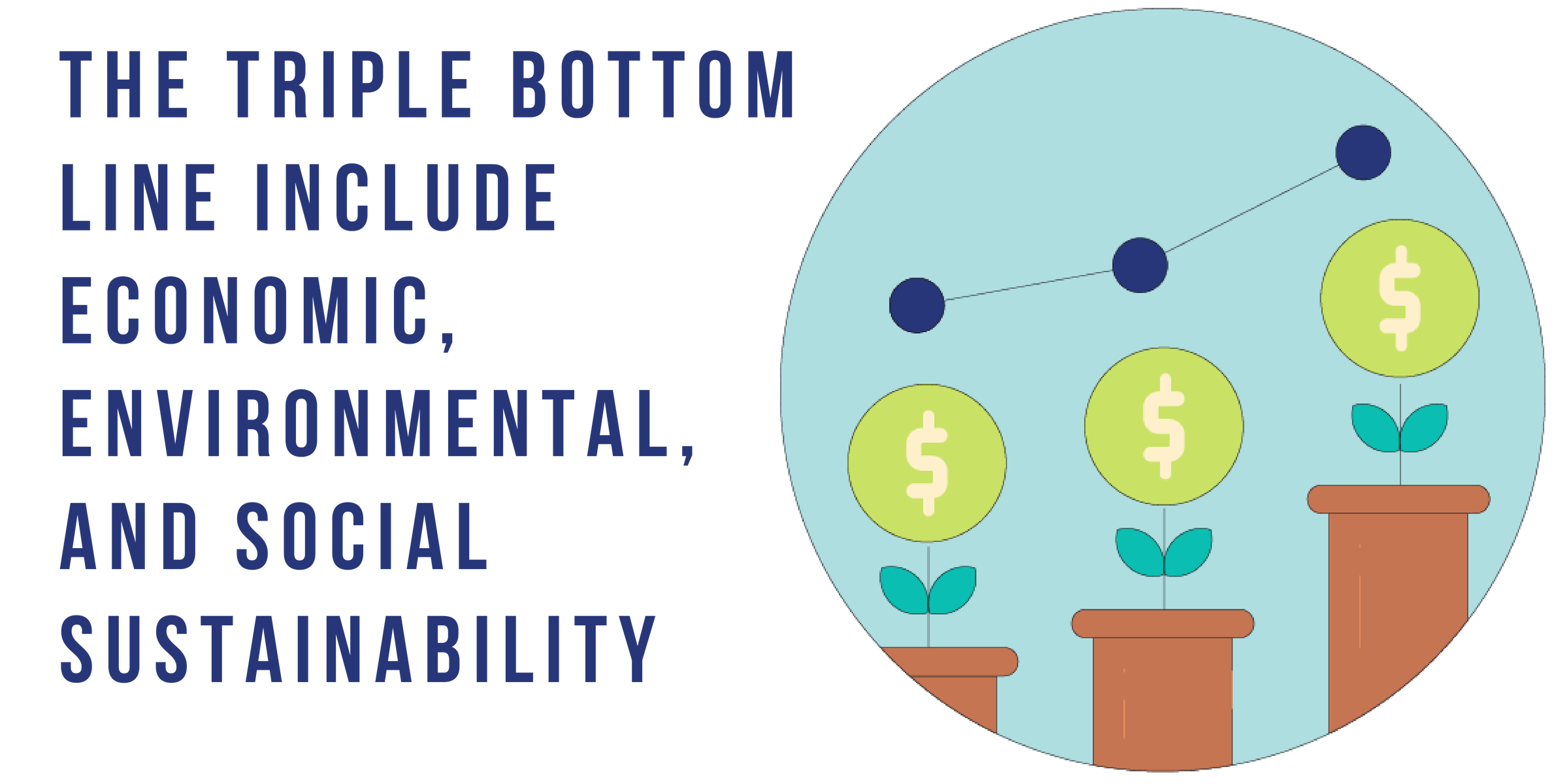
Students who are extremely passionate about environmental stewardship will fit right in at sustainability MBAs. With that said, sustainability MBAs graduates are truly versed in more than environmental sustainability. If contemplating new ways to provide longevity and sustainability within social, environmental, and disaster-related contexts is interesting to you, you may be a great fit for a sustainability MBA.
If you already know you’re interested in a sustainability MBA, be sure to check out our ranking of the best online sustainability MBA degree programs. If you’re still trying to determine if a sustainability MBA is right for you, be sure to read through our guide below.
In this guide we’re going to look at the following topics:
- What is a Sustainability MBA?
- Can I Get a Sustainability MBA Online?
- How Do I Gain Admission to a Sustainability MBA?
- What Can I Do With a Sustainability MBA?
- How Much Can I Earn With a Sustainability MBA?
What is a Sustainability MBA?
Sustainability MBAs are professional graduate-level degrees that provide master’s in business administration degrees along with course clusters in sustainability.
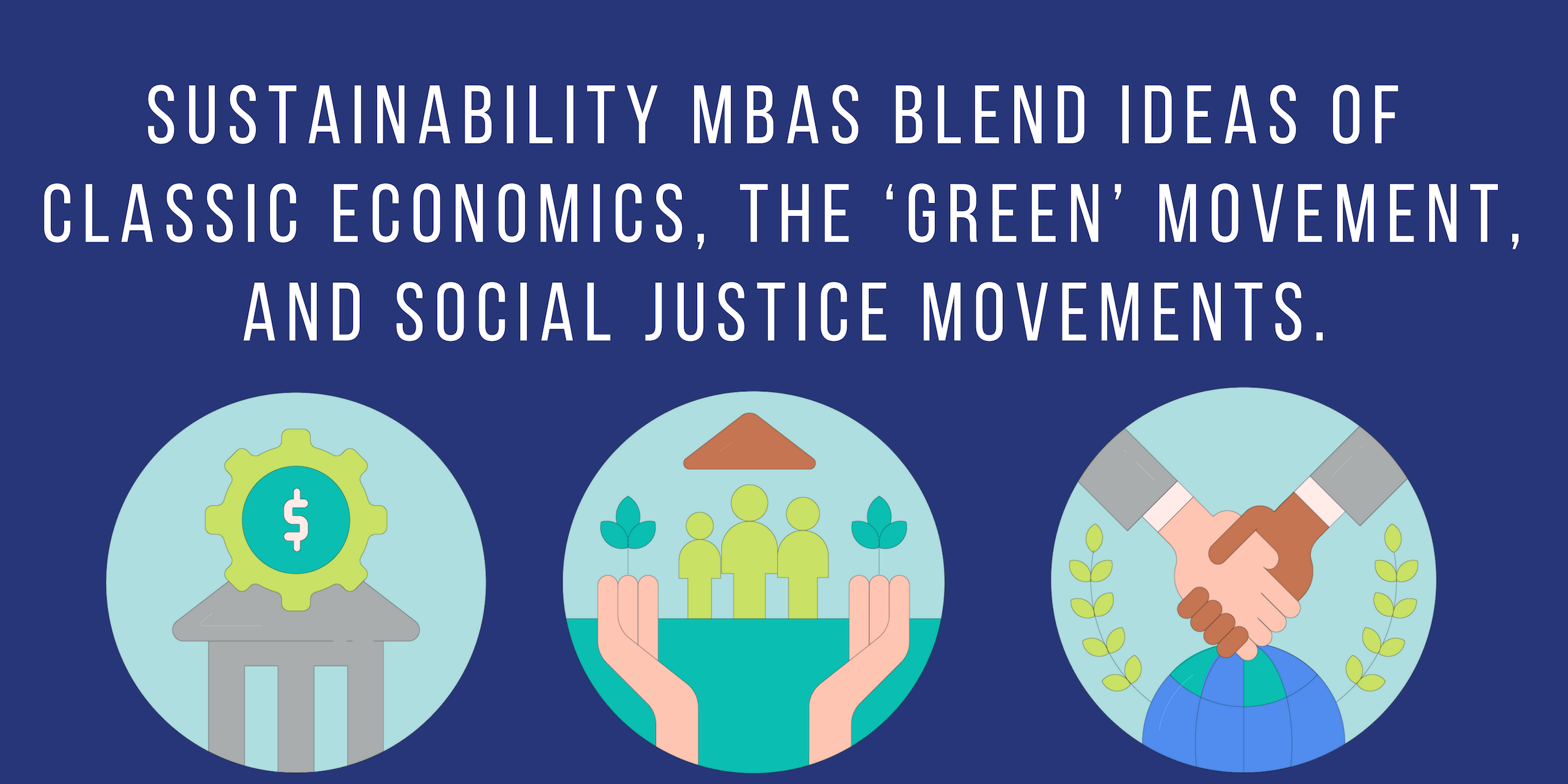
Most Master’s in Business Administration degrees have a similar core curriculum. And depending on whether they are traditional MBAs or executive MBAs may offer various concentration courses such as sustainability.
For non-executive MBA’s programs run 1-3 years depending on whether or not they are accelerated, full-time, or part-time. Many MBA programs are offered fully online, in hybrid format (some online and some in-person meet up’s), or in person.
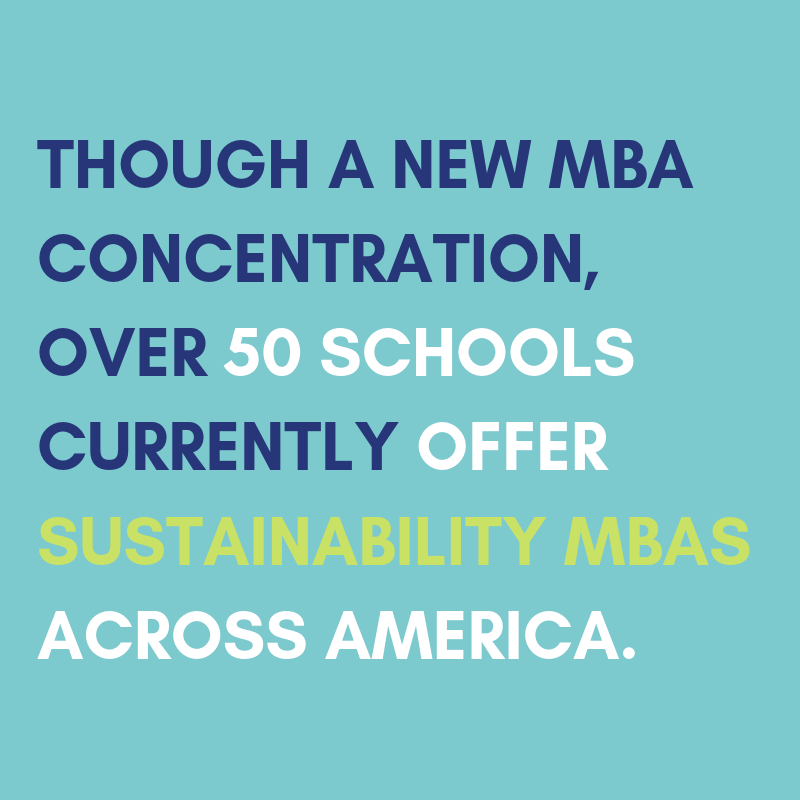
Core curriculum classes within a master’s in business administration commonly include the following courses:
- Data Analytics
- Human Resouces
- Financial Accounting
- Operations Management or Logistics
- Microeconomics for Management
- Strategic Thinking
- Managerial Accounting
- Marketing Management
- Managerial Finance
- Leading Teams or Project Management
The overall goal of the core curriculum within master’s in business administration degrees is to acquaint students with a broad range of disciplines within business and organizational management. While MBA courses are at the graduate level, students seldom take more than one course within a discipline except for in their concentration.
Within a sustainability MBA concentration, however, students will dive more deeply into sustainability topics examining them with different perspectives and with different skill sets.
Some of the most common sustainability MBA concentration courses include the following:
- Climate change law, policy, and opportunity
- Managing Sustainable Organizations
- Environmental Management and Strategy
- Risk Management
- Sustainability Systems
- Sustinable Investing
- The triple bottom line
- Sustainable marketing
While not all of the courses selected above will be available in any one given sustinability MBA, a selection of 3-5 will likely be present. If a particular cluster of the courses listed above (or related courses) are of interest you’ll want to double check that the programs you are interested in provide these courses.
One fantastic way to compare some of the different options among sustainability MBAs is to check out our ranking of the best online sustainability MBA degree programs today!
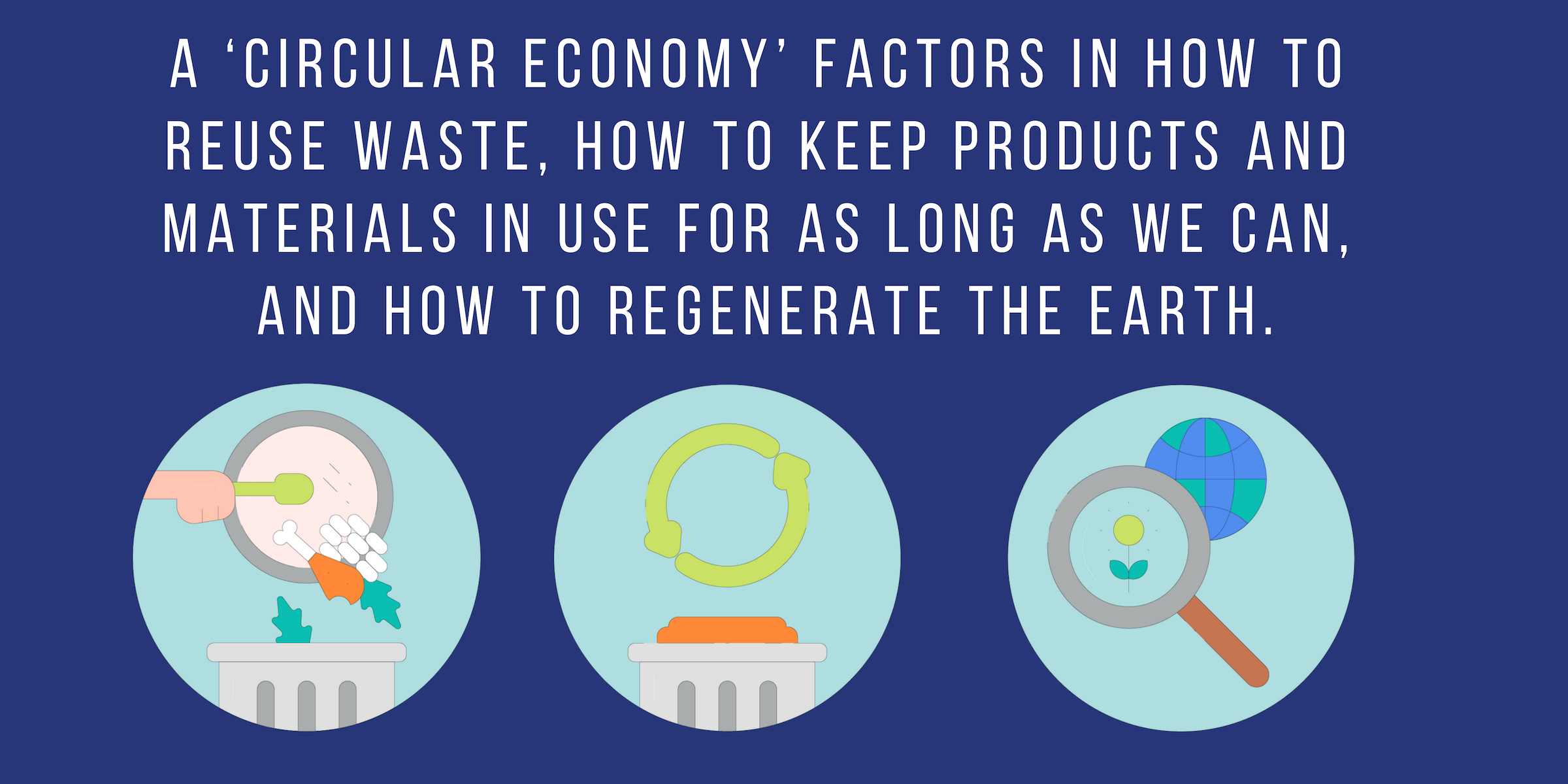
One question we are often asked is can you pursue a sustainability MBA through an executive MBA program. The answer is no, not in the same way you can with a traditional MBA. Executive MBAs are meant for experienced professionals with at least 5 years of experience managing others. These courses of study assume that you already know many of the basics of a range of business disciplines. Accordingly, they proceed much more quickly than traditional MBAs, and often have many fewer courses, leaving little time for concentrations as is the case in traditional MBA programs.
Can I Get a Sustainability MBA Online?
Almost every type of MBA concentration may be pursued either in-person or online. Business schools have always catered to the unique students that seek to attend them.
In the case of MBAs, most candidates work full time, are non-traditional students, or otherwise have time obligations in life. This led many MBA programs to become pioneers in distance education, and later to build out robust online offerings. Many of the top MBA programs in the nation offer fully online MBA programs.
With that said, online MBA programs come in varying types. Students seeking a sustainability MBA online should be aware of the following delivery method terms.
- Asynchronous course delivery means you can log on at any time. There are no “set” class times. This doesn’t mean that there are no due dates or programs are entirely self-paced, rather you just get to choose when you work on the program.
- Synchronous online course delivery involves “live” courses. Students “meet” for a class at the same time aided by video or audio conferencing.
- Fully online programs have no requirements that students must show up to any events on campus. If this is the program type you are seeking, be sure to question an admissions staff member to ensure that the program is truly 100% online.
- Hybrid online programs require some in-person meet ups. The in-person requirements for hybrid programs vary greatly so be sure to see what is specified on your program website. Some hybrid programs meet once a week or more in-person, while some just require a single weekend in a semester or year.
While there are more online options than ever before, students should take a long hard look at whether online is the right option for them before committing. Many MBA students are older than traditional university students, and thus less likely to have taken online courses before. While many students do thrive online, there are definite trade offs.
Some of the most commonly mentioned “cons” of online education include a greater need to be a self-starter, and the fact that it is often harder to craft meaningful relationships with classmates and professors online.
Some of the most commonly mentioned “pros” of online education include lower fees, no need to quit your job or move, and a greater variety of flexibility-increasing options.

If you think you might be interested in a fully online sustainability, we recommend looking around at some of the top programs of this type and seeing what support offerings and scheduling options are available.
How Do I Gain Admission to a Sustainability MBA?
The short answer is, ‘exactly the same way you would gain admission to any MBA.’
Sustainability MBAs are — after all — primarily MBA programs that just happen to offer a concentration or focus area in sustainability.
The admission process to most MBA programs, including both online and in-person programs, is generally the same.
Requirements include:
- Lining up funding for your program
- Completing the required standardized tests (most often the GMAT)
- Providing transcripts to show you have a bachelor’s degree from a regionally accredited school (and often that you have a GPA above a minimum amount)
- Writing essays, a statement of purpose, and otherwise filling out the application
- Finding references
- And for some programs, completing interviews
Working down the list of requirements, applicants should work to figure out funding options early in their application process as financial matters may majorly dictate what programs are possible.
In figuring out how financially feasible MBA programs are, students should be aware that not many students actually pay the full “sticker price.”
Fill out the federal financial aid application (FAFSA) early in your MBA search. This will provide you with your ‘expected contribution’ based on your salary. Note that as a graduate professional degree, that you are eligible to take out the entire amount of the program in Federal student loans if you so choose. Federal student loans are generally viewed as having lower interest rates and additional safeguards for borrowers when compared to private loans.
Additional funding options common in MBAs include aid from employers (if you aren’t sure if your employer offers this, just ask!). Scholarships are another common offering at MBAs. Databases of scholarships online show many scholarship options provided by trade organizations, civic organizations, for certain demographics, and based on your geographic location.
Another element to admissions that you’ll want to start preparing for early is the GMAT. Many competitive programs have strict lower limits for GMAT scores, and you’ll want to make sure you get the score needed to attend programs that interest you.
If you would rather not include the GMAT in your application strategy, there are a number of schools that do not require the GMAT for admissions. Check out MBACentral’s ranking of the best no-GMAT MBA programs today for more information!
The remainder of the application process is similar to undergraduate admissions. Some programs have GPA requirements from your past degrees. Most commonly, schools that specify what your undergraduate GPA should be for admission clarify that they are seeking GPAs above 3.0 or above 3.25. Some of the most competitive schools in the nation specify higher GPAs, though this is uncommon.
Now that you have a picture of how admissions work for sustainability MBAs, be sure to check out some of our top ranked sustainability MBAs to see if there’s a program that may be a good fit today!
What Can I Do With a Sustainability MBA?
One reason why MBA recipients are such valuable hires is that they are often versatile workers and leaders within business settings. Unlike other degrees that primarily prepare you for one job, MBAs are found in nearly every role type within large organizations.

This means that the short answer to ‘what can I do with a sustainability MBA’ is ‘almost anything!’
With that said, students are often interested in a particular concentration with an MBA program because they are seeking a job or promotion in that specific subject area.
Some of the most common sustainability-centered jobs in business include the following:
- Sustainability consultant roles
- Supply chain and logistics roles
- Director of Compliance roles
- Management roles in industries focused on sustainability
- Engineering roles
- Human resources roles
- Director of sustainability roles
- And more
Working our way down the list, one of the first careers followed by sustainability MBA graduates is that of sustainability consultant
While more organizations than ever are incorporating sustainability thinking into their strategies, not all organizations have a team dedicated to these issues. Before really honing their presence, many organizations will call in outside sustainability consultants to get a glimpse of some of the opportunities, risks, and overall costs of sustainability initiatives.
Some of the most common job responsibilities of consultants who focus on sustainability include:
- Honing research methods and gathering data on client organizations
- Preparing detailed reports that include specific and overall policy-related suggestions related to sustainability
- Working as expert witnesses in court settings
- Performing original research and acting as leaders within the sustainability space
- And more
Consulting can be one of the most well compensated roles outside of the “C-Suite” in business. Oftentimes consultants will work their way up within a large organization, then start to offer their insights through their own business. There are also large consulting firms, some of which are quite prestigious and offer outstanding pay.
The average salary of a consultant focused on sustainability is $70,000. The top-paid consultants within this space can make several hundred thousands of dollars a year, however.
Think you might be interested in a sustainability MBA? Be sure to check out MBACentral’s ranking of the best online sustainability MBAs today!
Our second role integrally tied to sustainability in many organizations is that of supply chain or logistics manager
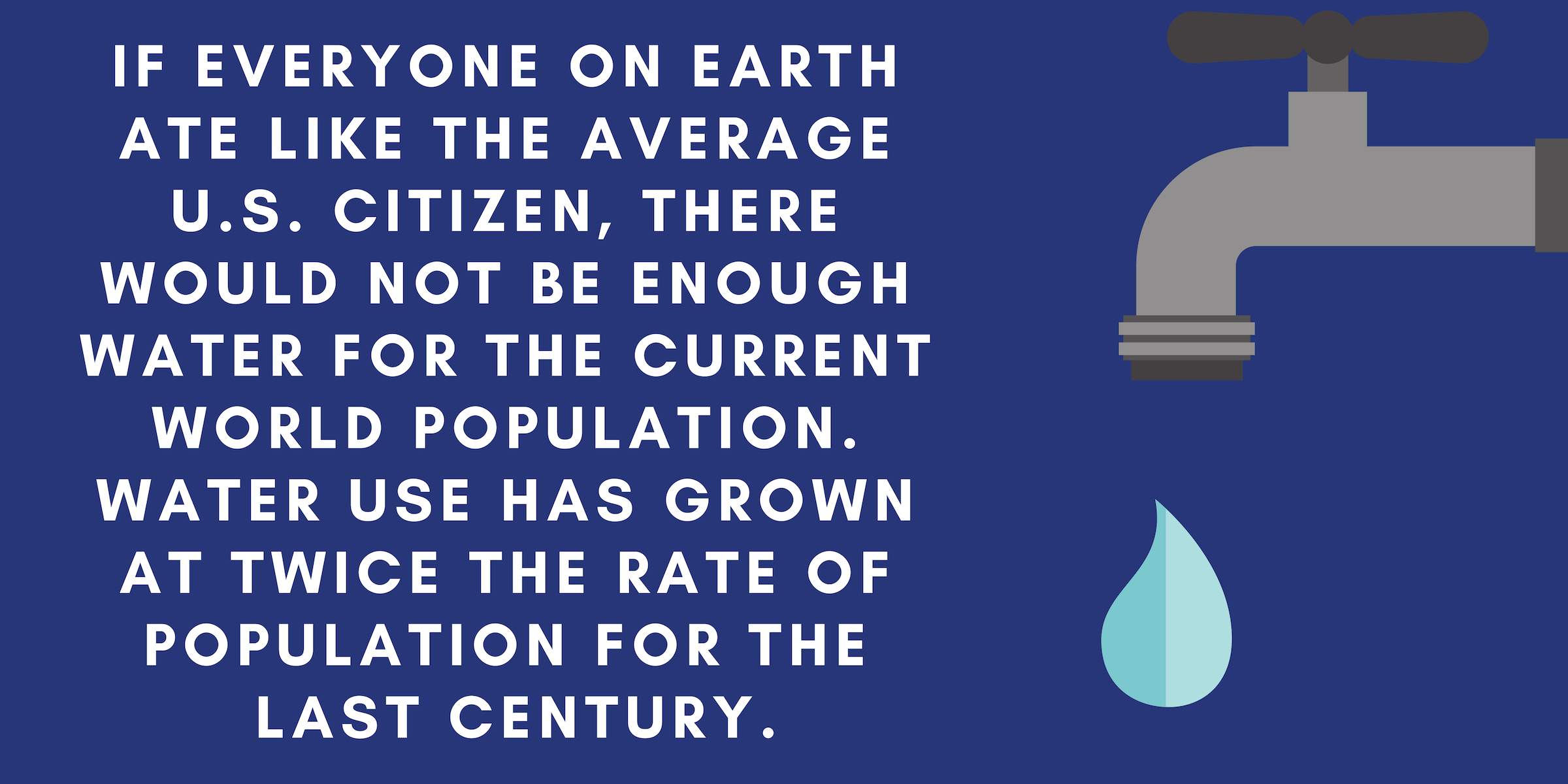
Supply chain or logistics managers are tasked with creating systems through which raw materials are sourced, transported to manufacturing settings, forged into products and then distributed. With many organizations starting to re-think the environmental impact of both sourcing and transportation practices, these positions are perfect roles to put sustainability thinking in action.
Additionally, supply chain and logistics roles often make decisions that impact a wide variety of stakeholders, which is integrally tied to the human component of sustainability. Choices of where to build manufacturing plants, what practices to promote in the harvesting of natural resources, and how to treat distribution workers have a large impact on many lives.
Supply chain and logistics managers are in high demand, and many companies desire MBA graduates for these roles. The average salary for these roles is currently $108,906.
Our third prominent role commonly held by sustainability MBA graduates is that of director of compliance.
Director of compliance roles can mean many different things depending on the industry at hand. At it’s heart however, this position is related to dealing with entities that enforce social responsibility. Social responsibility is part of the triad of sustainability thinking, and in the case of large organizations can take the form of dealing with regulatory bodies, trade groups, or public stakeholders.
Job requirements of director of compliance roles include:
- Tracking laws and regulations related to an organization’s operations
- Creating corporate policies for keeping in line with laws and regulations
- Going “above and beyond” and preemptively seeking to ensure an organization follows more than the letter of the law
- Work a liaison between general stakeholders, governing bodies, and the organization
Director of compliance roles can be critical, particularly in businesses where not following laws or regulations could shutter the business. As such, many directors of compliance are well compensated. The average salary for director of compliance roles is currently $100,255.
MBAs help to prepare graduates for a wide range of managerial and leadership roles. Management roles in which sustainability issues are central is perhaps the broadest category of jobs that sustainability MBA graduates take.
For organizations at which selling a product or providing a service related to sustainability are central, sustainability MBAs can offer great insight. Common employers may include alternative energy providers, organizations promoting sustainable farming practices, organizations seeking to combat climate change, and many others.
Common roles assumed by MBA graduates in these fields may include project management roles, marketing management roles, analytics management roles, or program management roles.
Average salaries of these roles include the following:
- Project Manager: $73,624
- Marketing Manager: $145,620
- Analytics Manager: $109,170
- Program Manager: $130,901
Engineering roles are another job that sustainability MBAs can help employees to excel at. While sustainability MBAs won’t prepare students for engineering tasks, many MBA-seekers are currently engineers. For engineers working on products integrally tied to sustainability, sustainability MBAs can provide a crucial stepping stone to taking on leadership roles.
Industries in which engineering is greatly concerned with sustainability include:
- Agriculture
- Food Products
- Sustainable Energy
- Chemical Engineering
- And Transportation
While engineering roles can vary greatly depending on what type of engineer one is and what industry one works in, the average for all engineering types is presently $80,000. By mid-career or with advanced degrees like a sustainability MBAs, earnings often surpass $100,000.
Human resources roles including human resources manager are deeply tied to the human and social responsibility aspects of sustainability. While many human resources managers instead seek human resources MBAs, a sustainability MBA with the proper courses can be very tied to HR. Additionally, as a relatively newer degree, not many HR managers hold sustainability MBAs. This can help to separate you from the competition and aid you in providing unique insights for your organization.
Common tasks performed by human resources managers include:
- Implementing policies related to hiring, onboarding, and the termination of employees
- Ensuring mediation and effective resolution of disputes
- Ensuring policies promoting sustainable treatment of human capitol
- Ensures sustainable levels of onboarding to meet departmental needs
Human resources managers are in high demand in a variety of large organization types. The average salary for these roles is presently $88,000.
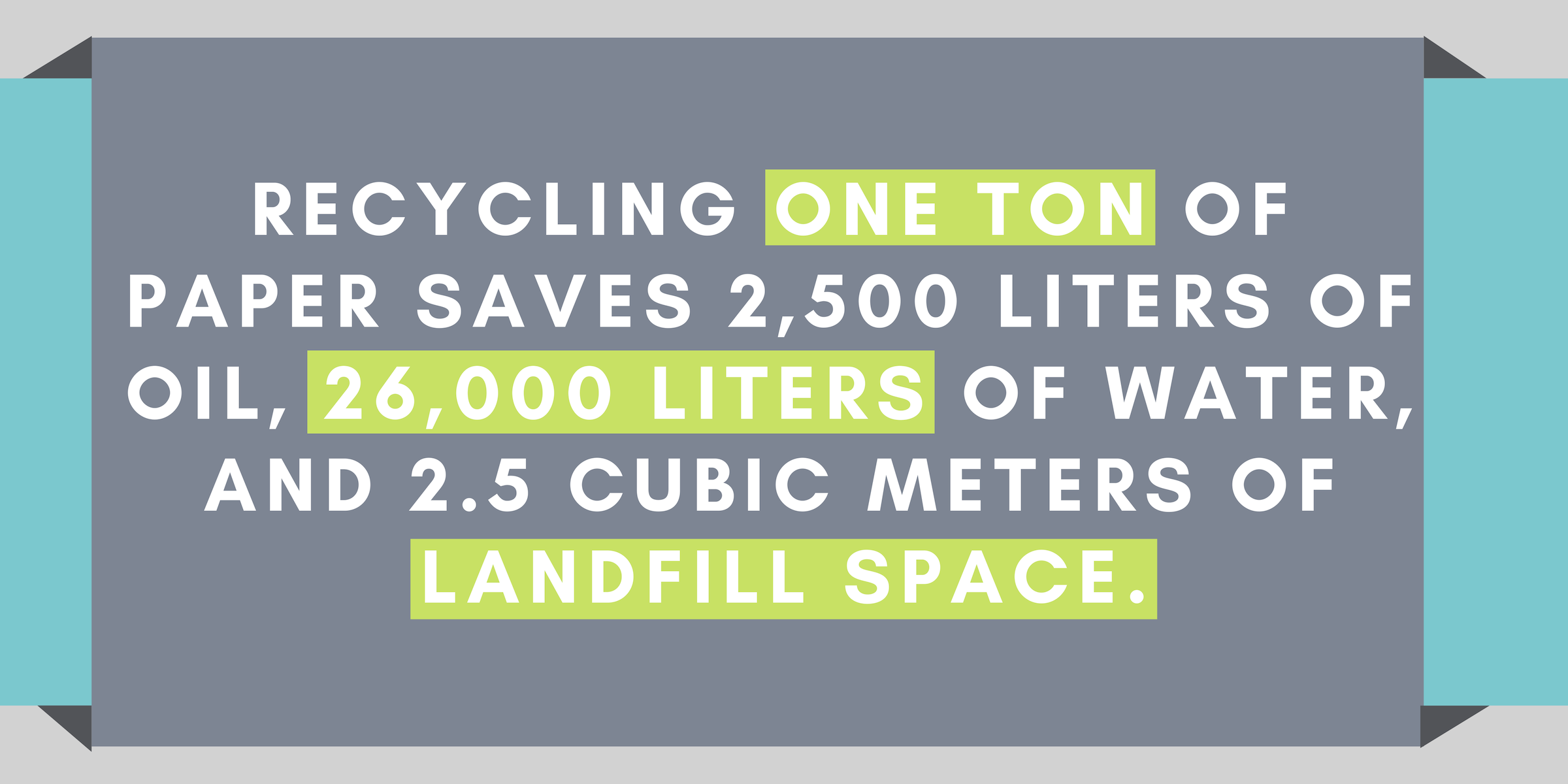
Finally, director of sustainability positions (sometimes called chief sustainability officers) are perhaps the most high profile of the positions that employees can prepare for with a sustainability MBA. This relatively new position is often found in organizations that have made strong commitments to sustainability, or to that those are mandated to change practices by regulatory bodies.
Common tasks performed by a director of sustainability include:
- Researching, planning, and implementing key sustainability goals and policies
- Educating members of the organization about sustainability
- Staying up-to-date about the latest technological advances, legal changes, and consumer preferences regarding sustainability
- Develop metrics and reporting practices related to sustainability
- Be the face of leadership with sustainability initiatives
- Directly manage or provide input into teams working on projects directly tied to sustainability
Chief sustainability officers or directors of sustainability are crucially important to organizations with grand sustainability plans. The average salary for these roles is presently $98,158.
Think you might be interested in a sustainability MBA? Be sure to check out MBACentral’s ranking of the best online sustainability MBAs today!
How Much Can I Earn With a Sustainability MBA?
The true answer to this question is that the sky is the limit. MBAs are known as the most popular degree among C-Suite executives as well as entrepreneurs.
With that said, more common roles like those listed in the previous section provide salaries ranging from $70,000-$150,000. These salaries are similar to those of many management roles within business. Which is to say that if you are passionate about sustainability, you aren’t losing out by marrying your passion with your career. Earnings for sustainability-centered jobs are commensurate with other management positions within business (and promote social and environmental goods).
Think you might be interested in a sustainability MBA? Be sure to check out MBACentral’s ranking of the best online sustainability MBAs today!